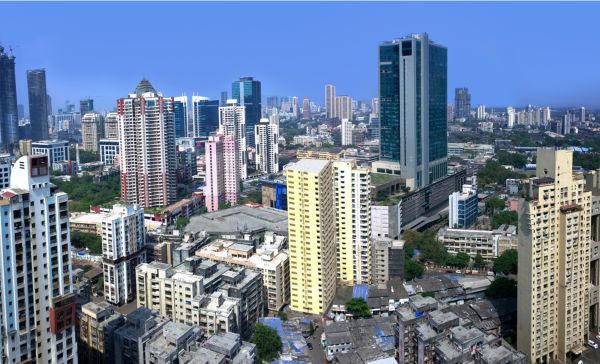By AW Research
There are more than 500 Acts, ordinance, Rules and Bye-laws govern real estate. And housing being state subject, every state has its own Acts and Rules. Every Municipal Corporations have Development Control Rules, Every council and Panchayat have their own set of regulation to control real estate development and real estate transactions.
There are four main Acts which governs real estate.
- Real Estate (Regulation and Development )Act 2016
- Indian Registration Act 1908
- Indian Contract Act 1872
- Transfer of Property Act 1882
Land as an asset plays an important role both in rural and urban areas. In fact our people attach significant social and cultural values to it. Therefore, it is important that a landholder should have an authentic and tamper proof record of the land. In India since time immemorial, rulers have been mapping land for various purposes like collection of taxes, military purposes, demarcating political boundaries, settling disputes etc. As the population increased, the land parcels became small & valuable, and different agencies like Panchayats, Consolidation Department, Survey Department, Revenue and Registration Department etc. came into existence. The manual system of land records maintenance was not able to cope up with this situation. There is growing demand for easy accessibility to up-to-date and accurate land records. The advent of computers in the country in the eighties provided a solution to this problem. As a
follow up of the decision in the Conference of the State Revenue Ministers in 1985, the Government of India initiated two Centrally-sponsored schemes – Strengthening of Revenue Administration & Updating of Land Records (SRA& ULR) and Computerization of Land Records (CLR).
There are many law and Act but there persist a Golden Rule in Real Estate which is followed by from Small Causes Courts to Supreme Court of India. The Golden Rule is “The Occupant is the Owner” prima facie, the onus is on person who claim. Surprises even after due diligence come up, many year after acquisition of property. Records and Rights are so complicated that even big lawyer firm sometimes get hooked up with surprises.
We have Land Revenue Code all over India. Every state have Land Revenue Code. Title of land depends on record of rights maintained by Village officer and Tehsildar and then collector. Collector is supreme authority as far as land records are concern.
All lands are basically agricultural land unless the Government classifies it as a non agricultural land. So your grass land or rocky barren land is an agricultural land. Agriculturist means a person who cultivates the land personally and agriculture includes the raising of grass. Accordingly the person who holds the land is agriculturist. Land is transferable heritable immovable property and so family member of an agriculturist is also an agriculturist. You are also farmer even if you are not showing physical presence on your grandfather’s land.
One of the objectives of land revenue administration is to recover the revenue, thus it is obvious that failure to pay arrears of land revenue makes the holding liable to forfeiture. On forfeiture the occupancy ceases to be property of the occupant under section 72 of MLR Code 1966. The forfeited land shall not change hands by way of inheritance. You know that none of your family member has paid any taxes for 40-50 years to the Government. So question before you is whether the land is forfeited by Government? It is duty of Talathi to recover land revenue from you. In case if Talathi could not recover revenue from you he has to follow a lengthy procedure to forfeit the land. Instead of going for lengthy procedure he is paying land revenue on your behalf from his own pocket or collecting it from the person who holds interest in your land.
Since housing is state subject, every state have their own housing related Acts. Like for example Maharashtra Co-operative Society Act, Gujarat Ownership of Apartment Act etc.
Since newly enacted Act viz: Real Estate (Regulation and Development) Act will be supreme and will supersede every such state Acts, now India will have a common Real Estate Act in every state. May be the Rules and Regulation differ, but the provisions and definition will remain same. Article 256 of Constitution of India says that when there are two or more Acts on the same subject from Centre Government and State Government, the Act of Central Government will supersede the state Acts.
Real Estate transactions are heavily taxed. We know that builder pass on VAT on customers. Service Tax, as applicable, has to be paid by the customers. Development Cess / Tax, Capital Gain Tax, Property Tax, Stamp Duty, Registration charges, Transfer fees if applicable. Besides these taxes, one has to pay maintenance and interest on home loans.
How a ordinary middle class or poor class going to afford a house in metros? Even if housing agencies like MHADA, DDA, HUDA or GUDA going to give affordable and cheap housing options but one cannot purchase these without Housing Finance or such taxes.
Tax incentives were introduced under 80IB for builders developing affordable housing. But the advantage never been passed to actual property purchasers.
Its high time that Tax regime must put a stop on exploitation from the need based industry, Real Estate. Only 70.6 per cent of urban population has access to individual water taps, about 81 per cent of urban households have access to any form of latrine facility, 71 per cent of urban households have a drinking water facility within their premises, and only 62 per cent of waste is treated before disposal. Urban transportation problems are similarly acute; public transportation is congested and inefficient. Housing too is problematic, with almost 25 per cent of the urban population of India living in slums. In spite of such grave exponential problems, government after government declares targets which are far from achievable without any execution plan.
According to Bahl and Martinez-Vazquez, 2008, only Property tax constitutes 3.4% of GDP in year 2000. It has increased many fold. Governments are keen on exploitation of real estate further by way of auctioning land to private developers on a unreasonably high price and huge premium on FSI. TDR being the obligatory to be received, government wants its share on TDR portion too and have imposed 33% reservation on a premium to be taken from Govt which distracts the very concept of TDR. Actually it’s not TDR, its FSI purchased from state government on premium that too decided by government. The ultimate cost comes to property purchaser.
Why do highest portion of black money expected to be there in real estate transaction? An honest citizen wants to pay taxes but reaching this almost 50% by all means. Taxes are revenues for government but need based industry must be given some relief. A homeless person needs home. Government must enhance his affordability by way of giving him opportunity of employment and as well as giving incentives to purchase home. A draconian tax regime and looting intention will never make “Housing For All by 2022” a success. Tax reforms on real estate transaction are need of the hour if we want to achieve our objectives of Housing for all. Tax holidays for next ten years are the only answer.
Right to own property or real estate was our original Fundamental Right given by The Constitution of India. During emergency time this Right was taken aback by Government in 1975 and till now not resorted. It is now on under Article 300A, Right to Own a property is given as constitutional Right. Hence government do not need any Land Acquisition Act or any such Act which empower it by prerogatives to acquire any property or shelter in India.
Most unfortunately, government after government no budgetary allocations to shelter needs provided. Phonic statements and vision statements without any execution plan are made to lure the attention. But unfortunate citizen living in unhygienic conditions in slums and villages where even drinking water or powers have not reached.
In various cases, the Supreme Court has enlarged the meaning of life under Article 21 of the Constitution to include within its ambit, the right to shelter. In some of the cases upholding the right to shelter, the Court looked at differentiating between a mere animal-like existence and a decent human existence, thereby bringing out the need for a respectable life.
Upholding the importance of the right to a decent environment and a reasonable accommodation, in Shantistar Builders v. Narayan Khimalal Totame (1990) 1 SCC 520: AIR 1990 SC 630 the Court held that,
“The right to life would take within its sweep the right to food, the right to clothing, the right to decent environment and a reasonable accommodation to live in. The difference between the need of an animal and a human being for shelter has to be kept in view. For the animal it is the bare protection of the body, for a human being it has to be a suitable accommodation which would allow him to grow in every aspect – physical, mental and intellectual. The Constitution aims at ensuring fuller development of every child. That would be possible only if the child is in a proper home. It is not necessary that every citizen must be ensured of living in a well-built comfortable house but a reasonable home particularly for people in India can even be mud-built thatched house or a mud-built fireproof accommodation,”
In Chameli Singh v. State of U. P [(1996) 25CC549 132] a Bench of three Judges of this Court had considered and held that the right to shelter is a fundamental right available to every citizen and it was read into Article 21 of the Constitution of India as encompassing within its ambit, the right to shelter to make the right to life more meaningful. In para 8 it has been held thus : (SCC pp. 555-56)
“In any organised society, right to live as a human being is not ensured by meeting only the animal needs of man. It is secured only when he is assured of all facilities to develop himself and is freed from restrictions which inhibit his growth. All human rights are designed to achieve this object. Right to live guarantee in any civilised society implies the right to food, water, decent environment, education, medical care and shelter. These are basic human rights known to any civilised society. All civil, political, social and cultural rights enshrined in the Universal Declaration of Human Rights and Convention or under the Constitution of India cannot be exercised without these basic human rights.”
Emphasizing further on the right to shelter, the Court in this case held that,
“Shelter for a human being, therefore, is not a mere protection of his life and limb. It is home where he has opportunities to grow physically, mentally, intellectually and spiritually. Right to shelter, therefore, includes adequate living space, safe and decent structure, clean and decent surroundings, sufficient light, pure air and water, electricity, sanitation and other civic amenities like roads etc. so as to have easy access to his daily avocation. The right to shelter, therefore, does not mean a mere right to a roof over one’s head but right to all the infrastructure necessary to enable them to live and develop as a human being. Right to shelter when used as an essential requisite to the right to live should be deemed to have been guaranteed as a fundamental right. As is enjoined in the Directive Principles, the State should be deemed to be under an obligation to secure it for its citizens, of course subject to its economic budgeting. In a democratic society as a member of the organised civic community one should have permanent shelter so as to a physically, mentally and intellectually equip oneself to improve his excellence as a useful citizen as enjoined in the Fundamental Duties and to be a useful citizen and equal participant in democracy. The ultimate object of making a man equipped with a right to dignity of person and equality of status is to enable him to develop himself into a cultured being. Want of decent residence, therefore, frustrates the very object of the constitutional animation of right to equality, economic justice, fundamental right to residence, dignity of person and right to live itself.”
In PC Gupta Vs State of Gujarat and Ors, in 1994, the Court went further holding that the Right to shelter in Article 19(1) (g) read with Articles 19(1) (e) and 21, included the right to residence and settlement. Protection of life guaranteed by Article 21 encompasses within its ambit the right to shelter to enjoy the meaningful right to life. The right to residence and settlement was seen as a fundamental right under Article 19(1)(e) and as a facet of inseparable meaningful right to life as available under Article 21.
In Ahmedabad Municipal Corporation, Appellant V. Nawab Khan Gulab Khan And Others, the Court observed that,
“Article 19(1) (e) accords right to residence and settlement in any part of India as a fundamental right. Right to life has been assured as a basic human right under Article 21 of the Constitution of India. Article 25(1) of the Universal Declaration of Human Rights declares that everyone has the right to a standard of living adequate for the health and well-being of himself and his family; it includes food, clothing, housing, medical care and necessary social services. Article 11(1) of the International Covenant on Economic, Social and Cultural Rights lays down that State parties to the Covenant recognise that everyone has the right to standard of living for himself and his family including food, clothing, housing and to the continuous improvement of living conditions.”
As recognized by several human rights bodies of the UN, the full enjoyment of rights such as the right to human dignity, the principles of non discrimination, the right to an adequate standard of living, the right to freedom to choose one’s residence, the right to freedom of association and expression and the right not to be subjected to arbitrary interference with one’s privacy, family, home or correspondence is indispensable for the right to adequate housing to be realized, possessed and maintained by all groups in society.
At the same time, having access to adequate, safe and secure housing substantially strengthens the likelihood of people being able to enjoy certain additional rights. Housing is a foundation from which other legal entitlements can be achieved. For example: the adequacy of one’s housing and living conditions is closely linked to the degree to which the right to environmental hygiene and the right to the highest attainable level of mental and physical health can be enjoyed. The World Health Organization has asserted that housing is the single most important environmental factor associated with disease conditions and higher mortality and morbidity rates.





